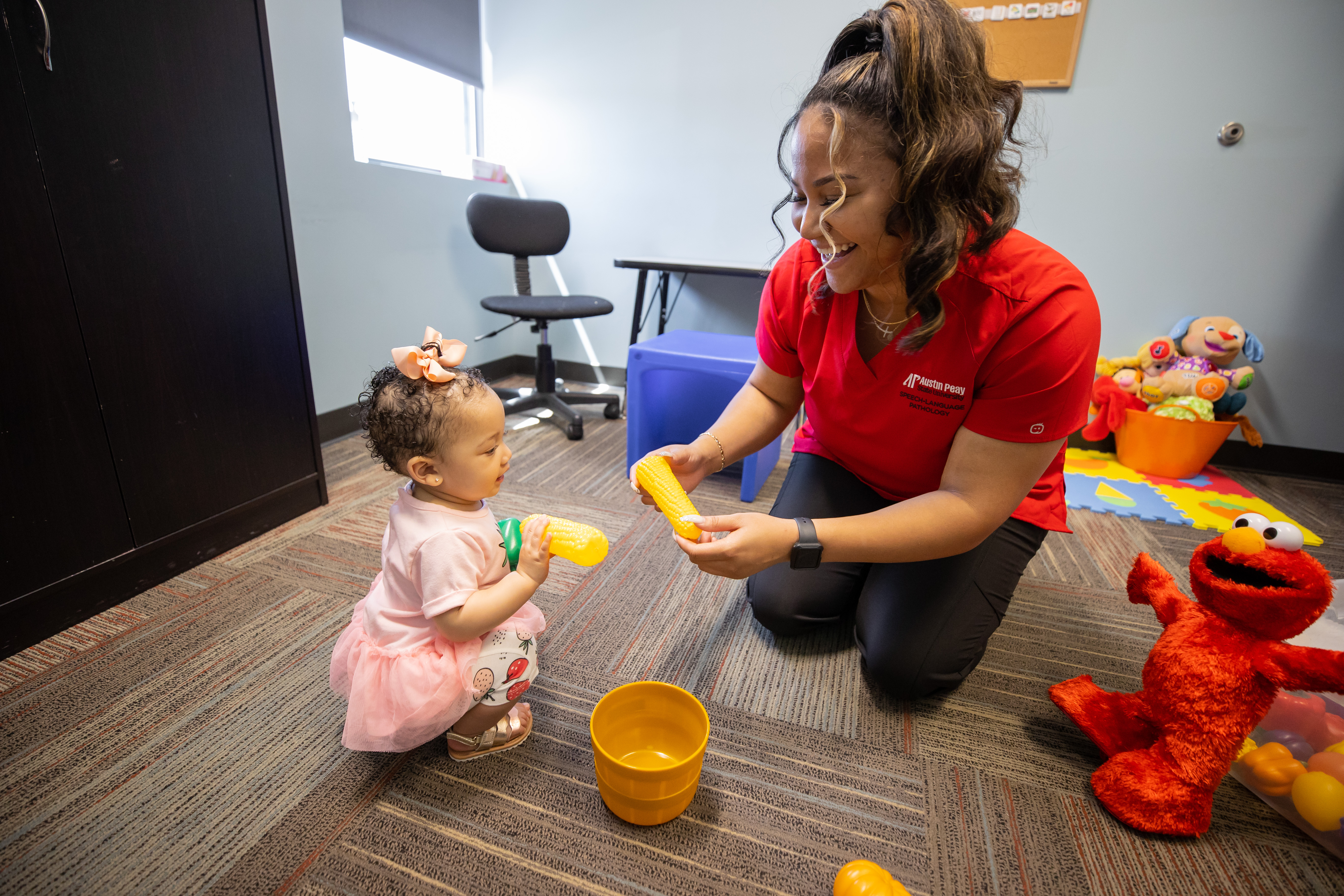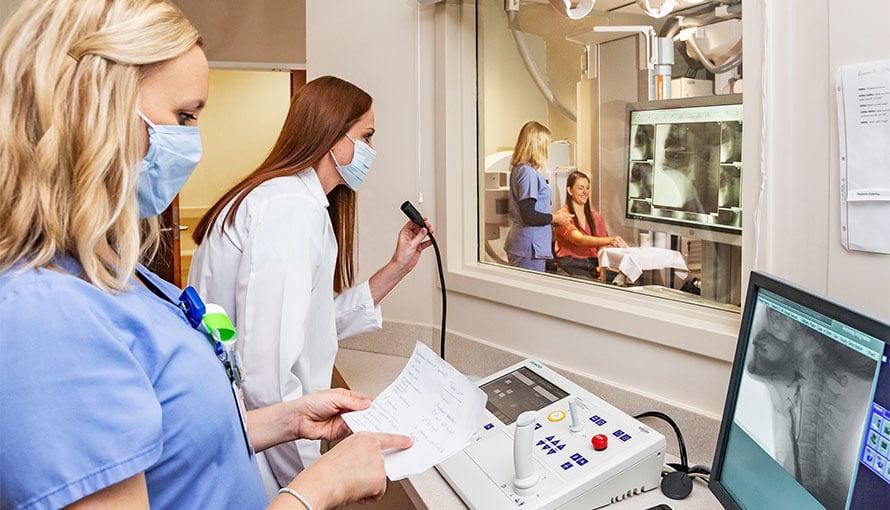Exactly How a Speech Pathologist Can Aid Improve Interaction Abilities
Reliable interaction is a foundation of expert and personal success, yet many individuals encounter challenges that impede their ability to express themselves clearly. A speech pathologist is outfitted to resolve these obstacles via targeted analysis and treatment methods tailored to each individual's demands. By using evidence-based restorative methods, they not only work to boost speech and language problems however likewise enhance total communicative capability. Comprehending the multifaceted role of a speech pathologist discloses exactly how their experience can change lives, inviting a more detailed exam of the certain methods and end results connected with their practice.
Understanding Interaction Disorders
Recognizing communication problems is necessary for recognizing just how they impact people' ability to reveal themselves and involve with others. Communication problems include a variety of difficulties that influence speech, language, and social interaction, commonly hindering reliable communication. These conditions can emerge from various aspects, including neurological problems, developing delays, physical problems, or psychological problems.
Speech disorders may show up as difficulties in voice, articulation, or fluency manufacturing, affecting how words are noticable or spoken. Language conditions, on the various other hand, include difficulties in understanding or making use of language, which can impede both non-verbal and spoken interaction. Social communication disorders are defined by troubles in the practical facets of communication, such as taking turns in discussion or understanding social signs.
The repercussions of interaction problems are extensive, impacting not only the individual's capability to share ideas and feelings however additionally their social relationships, educational chances, and total high quality of life. Understanding of these problems can cultivate compassion and support, encouraging effective strategies for interaction and engagement. Recognizing the complexities of interaction conditions is a crucial action towards advertising inclusivity and attending to the needs of those influenced.
Role of a Speech Pathologist
Speech pathologists often play an essential duty in detecting and treating interaction problems, utilizing a variety of evidence-based techniques customized per individual's needs. These specialists deal with individuals across the life-span, from kids with speech delays to grownups recuperating from strokes or distressing brain injuries. Their know-how includes a variety of interaction problems, including expression, voice, language, and fluency disorders.
In therapeutic setups, speech pathologists use structured interventions made to enhance communication skills. They may implement strategies such as speech exercises, language games, and social communication training to promote renovations in responsive and meaningful language abilities. Speech Pathologist. In addition, they educate customers and their households about reliable communication techniques and flexible approaches to navigate everyday communications
Beyond direct treatment, speech pathologists collaborate with various other medical care educators, experts, and caretakers to make sure a comprehensive strategy to therapy. They advocate for clients by giving sources and support, making it possible for individuals to achieve their communication objectives and boost their overall high quality of life. As specialists in the field, speech pathologists are necessary in cultivating effective communication, advertising freedom, and enhancing social participation for those with communication challenges.
Evaluation and Diagnosis Refine
The analysis and medical diagnosis procedure conducted by speech pathologists generally includes a detailed analysis to recognize interaction problems accurately. This process begins with an in-depth instance background, where the clinician collects relevant info regarding the person's medical, instructional, and developmental history. Recognizing the context of the individual's interaction problems is crucial for an exact medical diagnosis.
Complying with the situation history, speech pathologists make use of standard tests and informal evaluations to examine different aspects of communication, consisting useful reference of speech noise production, language understanding, meaningful language, and social communication abilities. These analyses are tailored to the person's age and details worries, offering valuable information for evaluation.
Observation is also an important component of the analysis process, as it permits the clinician to see direct exactly how the individual connects in natural setups. Furthermore, meetings with household participants and instructors can offer understanding into the person's communication obstacles throughout various settings.
Once the evaluation is complete, the speech pathologist manufactures the findings to determine a medical diagnosis and recommend ideal interventions. This comprehensive assessment procedure ensures that people get targeted support customized to their unique interaction requirements, laying the foundation for reliable restorative approaches.
Restorative Techniques and Approaches
Various healing techniques and techniques are employed by speech pathologists to address a selection of communication problems successfully. One commonly made use of technique is expression therapy, which concentrates on correcting speech seems via repetition and visual signs. This technique is especially beneficial for individuals with speech audio disorders.
One more efficient approach is language intervention, which improves both receptive and meaningful language abilities. This might involve interactive activities that promote vocabulary growth, sentence framework understanding, and conversational skills. Furthermore, speech pathologists usually utilize social abilities educating to boost practical language capacities, making it possible for individuals to browse social communications extra successfully.
Fluency shaping and stuttering adjustment methods are particularly developed to help those experiencing fluency conditions. These methods help clients develop smoother speech patterns and manage the physical and emotional parts of stuttering.
Moreover, different and augmentative interaction (AAC) systems are used for individuals with extreme communication problems. These systems, which can include motions, icons, or digital tools, supply necessary support for efficient communication.
Advantages of Speech Therapy

Furthermore, speech therapy can assist in creating essential listening and understanding abilities, promoting better communication in discussions. Individuals with cognitive-communication disorders can additionally profit, as therapy concentrates on reinforcing memory and analytical capabilities, vital for effective communication.
An additional essential facet is the emotional support given throughout therapy sessions. Speech pathologists create a secure setting, motivating patients to get over anxiousness and irritation associated to their communication concerns. This support can lead to boosted self-esteem and total mental health.
Additionally, early intervention with speech therapy can protect against more issues, guaranteeing that people reach their full communicative capacity. Generally, the advantages of speech therapy expand beyond simple speech renovation, positively influencing various measurements of life for those influenced by communication problems.
Conclusion
In summary, speech pathologists play an essential function in addressing communication problems through evaluation, medical diagnosis, and customized therapeutic treatments. By using evidence-based techniques, these experts boost individuals' speech and language abilities, cultivating improved clearness, fluency, and social communication skills. The benefits of very early intervention emphasize the significance of seeking help from speech pathologists, as their competence can significantly enhance communicative capacity, eventually bring about better success in both professional and personal page spheres.

Speech pathologists frequently play a crucial duty in identifying and dealing with interaction problems, employing a range of evidence-based strategies customized to each individual's requirements. As specialists in the area, speech pathologists are vital in fostering effective interaction, promoting freedom, and enhancing social engagement for those with communication obstacles.
